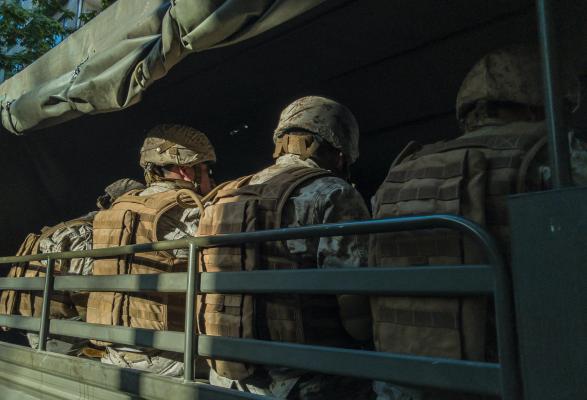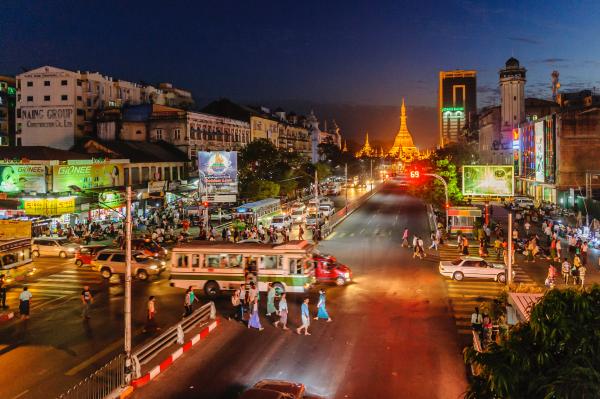
By Gabriella Payne
Many people from Melbourne’s Burmese minority groups are becoming increasingly worried about friends and family members back home in Myanmar, in light of the country’s recent military coup.
With the military now once again in control of the country and political tensions continuing to escalate, many leaders from Melbourne’s Rohingya, Karen and Chin communities say that they “fear the worst” for their compatriots, due to the military’s history of violence and ethnic cleansing.
In 2017, almost 800,000 Rohingya people fled to neighbouring Bangladesh when Myanmar’s military began murdering, raping and torching Rohingya villages in the Rakhine state, a move labelled as “a textbook example of ethnic cleansing” by the United Nations.
Majid Abdul, a Rohingya community leader from Melbourne’s South East who was persecuted by the military and fled the country fearing for his life, said that he was afraid that the current situation would see more violence break out against minorities in Myanmar.
“Many people are worried about family members still in Burma,” Mr Majid said.
“We don’t know what will happen. There are protests all over the country but the military are powerful and ruthless.”
Since Myanmar’s military (the Tatmadaw) seized control of the nation from the democratically elected leader Aung San Suu Kyi on the morning of Monday 1 February, citizen protests and demonstrations have been met with gunfire, tanks, internet black outs and arrests as the military declared a year long state of emergency and took Ms Suu Kyi and other ministers into custody.
This is not the first time Myanmar’s military have taken control over the country either – from 1962, the armed forces ruled Myanmar (formerly Burma) for almost 50 years, and it wasn’t until 2011 that the country began making tentative strides towards regaining democracy.
Aung San Suu Kyi was elected as Myanmar’s leader in late 2011 and was hailed as a “beacon of democracy” by many, after spending almost 15 years under house arrest (when the military ruled) and being awarded the Nobel Peace prize in 1991.
However, Ms Suu Kyi’s international reputation suffered greatly in recent times, as news of the military crackdown and Rohingya genocide in Myanmar’s Rakhine state surfaced in 2017, which, to this date, Ms Suu Kyi has failed to condemn and acknowledge.
Majid Abdul is just one of the Rohingya people who faced military persecution in the Rakhine state, and after escaping Myanmar for the safety of Bangladeshi refugee camps, he eventually made his way to Australia – but the atrocities he saw have stuck with him.
“I grew up in the Rakhine state and my parents ran their own business, fishing, cultivating and growing produce,” Mr Majid said.
“And then the military came when I was young and arrested our parents and extorted them, and I remember all of us children crying together, I still remember.”
Mr Majid said that once a month, sometimes even once a week, the military would return to arrest his parents and extort them, and “if they didn’t have money, they would have to sell everything”, in order to meet the military’s demands.
“We were scared and thought we must hide,” Mr Majid said.
“We fled the country because we knew that the military would kill us one day.”
Now, having made a home in Australia, Mr Majid feels lucky to have found a “safe and happy” place to live, free from danger, but with the recent coup seeing the Burmese military rise to power once again, he fears for fellow Rohingyan people back home and those stuck in refugee camps.
“Our people are persecuted and discriminated against,” he said.
“We would like to see more pressure from the international community on the military to restore democracy and stop violence against minorities.”
The United Nations have also expressed concerns that the recent military coup will worsen the situation for the estimated 600,000 Rohingya people still living in Myanmar and for those people currently living in refugee camps, who will now be even more fearful of returning home.
Talks had begun about the possibility of Rohingyans stuck in Bangladesh’s refugee camps to start returning home to Myanmar soon, but with this recent coup frightening many, this move looks unlikely.
Cath Scarth, the CEO of migrant refugee settlement agency AMES Australia, said that the conflict and uncertainty happening in Myanmar at the moment could cause higher levels of anxiety and stress for Burmese refugee communities.
“People are incredibly anxious, and particularly because for many of the refugees who are here, they have gone through that kind of period of persecution themselves and so will be very, very anxious about family members and what it might mean for them,” Ms Scarth said.
“And just the uncertainty. I think it’s very difficult for people to understand what might happen.
Anything like that is hard when you’re at such a distance, but doubly hard when it’s not always easy to get direct information about loved ones,” she said.
Ms Scarth encouraged Melbourne’s Burmese community to reach out if they needed help or just someone to talk with, and recommended people “check in on one another” in a neighbourly way.
“It’s even more important in times of crisis, such as the coup in Myanmar, that refugee communities are given as much support as possible,” Ms Scarth said.
“The (Burmese) community here will be feeling very helpless in terms of what’s going on, so even just asking if someone is ok could make a difference.”
If you or a community member you know is worried about the situation and needs help or someone to talk to, there are many organisations providing assistance.
Contact either AMES Australia on 13 AMES (13 2637), Lifeline 13 11 14 or Beyond Blue on 1300 224 636.







